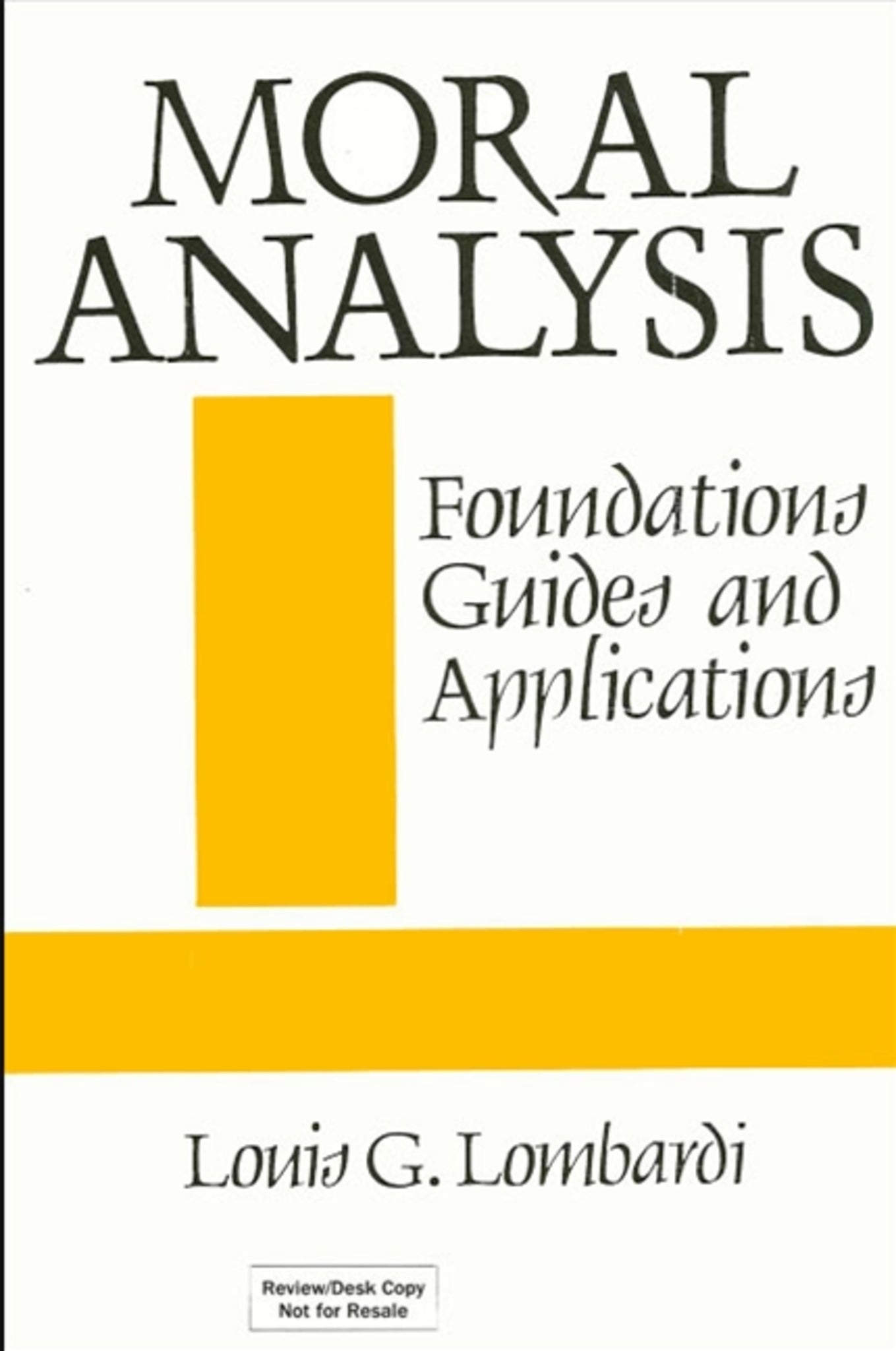We're sorry. An error has occurred
Please cancel or retry.
Moral Analysis

Some error occured while loading the Quick View. Please close the Quick View and try reloading the page.
Couldn't load pickup availability
- Format:
-
12 April 1988

This is an introductory text for an ethics course that provides the theoretical background for discussion of ethical problems. It could be supplemented with essays or anthologies on a range of particular problems, or an instructor could focus on the problems that occupy the concluding chapters: abortion, whistle-blowing, and the relation between ethics and the law. The first few chapters present ethical theory in straightforward fashion discussing alternatives and providing historical orientation. The middle chapters develop what the author calls "action guides" with principles for applying them. The last few chapters demonstrate the theory and action guides at work.


"I would buy this book. All too often philosophers present Kantian and Millian theories at such a level of abstraction that they seem to be totally unrelated to the ethical experience of any human being we know. We need more books that help us make moral decisions, that describe to us the stages we go through in coming to such decisions. There is no other book like this on the market." — Rosemary Tong, Williams College
"Most introductory books either focus on theory or take the problem approach. This book is unique in combining them with the discussion of 'action guides.' It is far better than most introductory texts." — Robert Cummings Neville, Boston University
Preface
Stage One. Moral Considerations as Foundations
I. Moral Considerations
II. Subjectivism, Relativism, and Morality
Stage Two. General Obligations as Action Guides
III. Universal and Special Moral Obligations
IV. Moral Obligations and Other Action Guides
Elaborations on Stages One and Two
V. Beings Owed Moral Consideration
VI. Human Rights as Action Guides
Stage Three. Sample Applications
VII. A Moral Problem: Abortion
VIII. Whistle Blowing
IX. Morality and Law: A Requirement for Restrictive Legislation
Conclusion
Index



